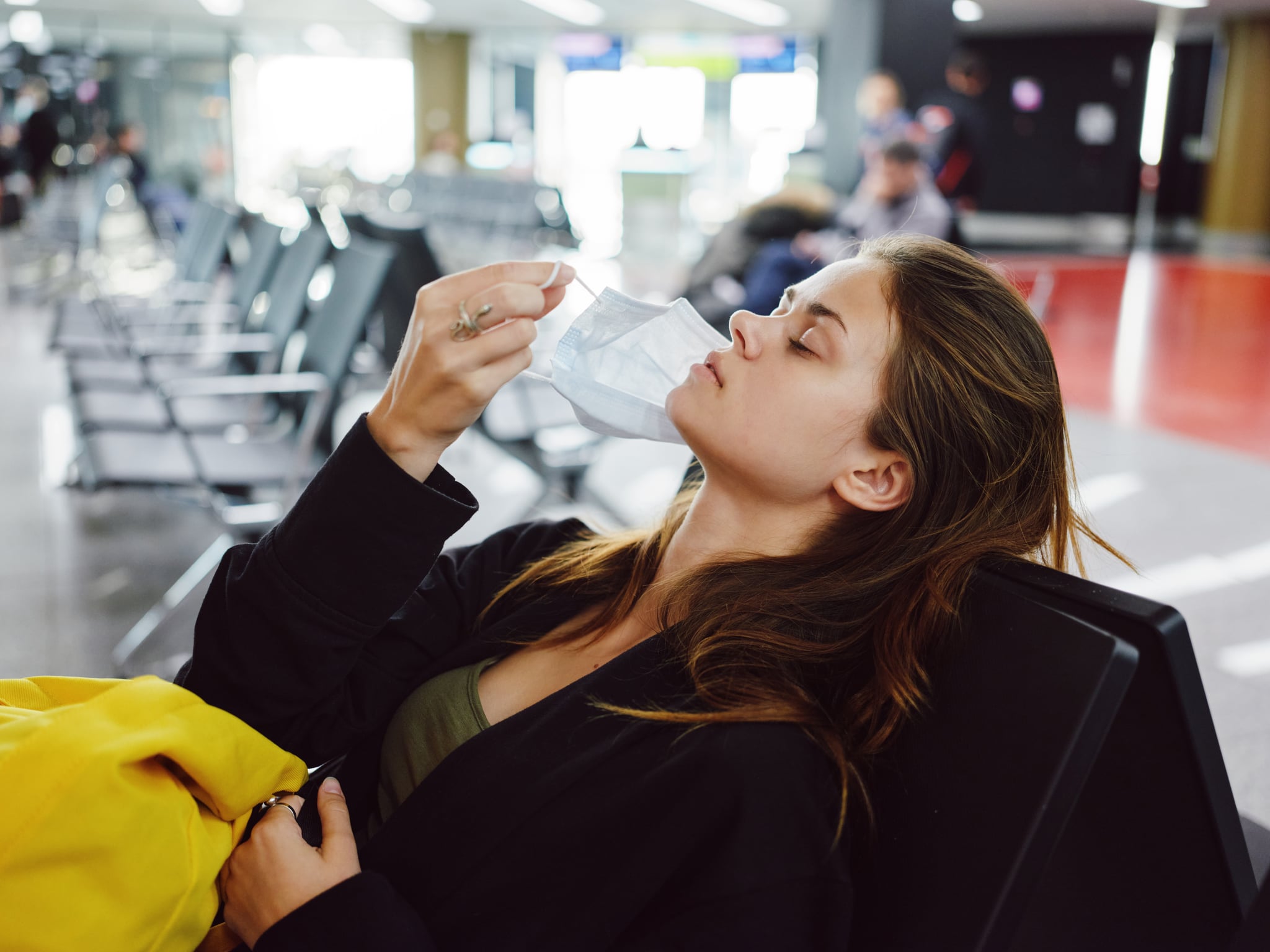Products You May Like

Image Source: Getty / Dmitry Ageev / EyeEm
A Florida court struck down the airplane and public-transit mask mandate on Monday, and it wasn’t long before the celebratory videos started flooding Twitter: flight attendants and pilots announcing to their passengers, often mid-flight, that the mandate was no longer in effect and that it was now their personal choice to keep their masks on or not. Many responded by pulling their masks off, clapping, and cheering. Shouts of “Finally!” rang through some cabins. Some flight attendants reportedly offered champagne to celebrate. Watching these videos was an uncomfortable, almost surreal experience. For someone who’s never really understood the furor around face masks (I can breathe just fine, and I don’t really care if strangers see half my face, to be honest), the celebratory atmosphere felt strange. The end of the mask mandate doesn’t signal the end of COVID-19. And the efficacy of masks to protect against respiratory viruses has been proven again and again. So is this news really worth applauding?
Major U.S. airlines dropped mask requirements after a federal judge struck down the Biden admin’s transportation mask mandate — here’s how passengers on flights reacted when they heard the news pic.twitter.com/5mLJTZxWPM
— NowThis (@nowthisnews) April 19, 2022
The truth is, COVID cases are once more on the rise in the US, thanks to the prevalence of the BA.2 subvariant. Experts say, too, that the the widespread use of at-home tests has likely knocked our official numbers off the mark; the true case count is likely much higher. Hundreds of people are still dying of COVID-19 every day in the US. Many survivors are still suffering the effects of it, including millions of long-COVID patients facing an uncertain recovery. Others are still experiencing the grief of losing a loved one to COVID or dealing with associated mental health problems triggered by the pandemic.
Not to mention that many people don’t have the privilege to rip their masks off or to spend time in the riskier environments of a plane, bus, or train where masks are optional. Immunocompromised people now face a greater risk if they choose to fly, use public transit, or take an Uber. The same goes for caregivers to young children and elderly people. Many people cannot afford to get COVID and miss work while they recover.
It’s understandable that crew members and airline employees might feel relieved that they no longer have to enforce a rule that was met with such strong and sometimes violent opposition. Of course, that violence wouldn’t have been a problem in the first place if the mask requirement was originally met with empathy and people saw it for what it really was: a way to protect ourselves and those around us. (Then again, if most Americans thought that way, the mandate probably wouldn’t have been necessary in the first place; we would’ve just worn masks by choice.) Maybe that’s what really feels disturbing about these videos: it feels like we’re celebrating the fact that we’ve made the world a less safe and hospitable place.
Don’t get me wrong, some doctors do believe that moving away from mask mandates and toward individual masking decisions is the logical next step of the pandemic. The ventilation on planes, in particular, is very good, and one-way masking works. But is now the time celebrate? COVID-19 is still here, and cases are still rising. The “freedom” to go mask-free alienates the immunocompromised, those at higher risk, and their caregivers. It seems premature to applaud the removal of a mask requirement that’s kept us safe from a disease that is still infecting and killing people every day. We’re all desperate for good news on the pandemic front, but in this case, cautious optimism feels more appropriate than popping champagne and twirling our masks in the air. Fifty-six percent of Americans still support a mask mandate for airplanes and public transit, so there’s still hope that many of us will continue to choose safety over “freedom” from masks. You hate to hear it and I hate to write it, but the pandemic isn’t over. Maybe keep the champagne on ice for now.
